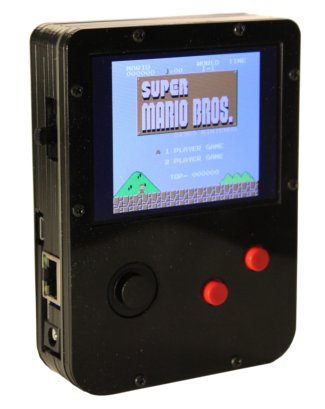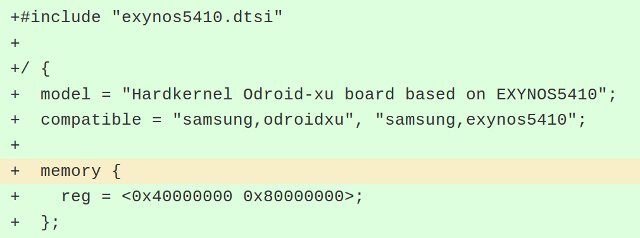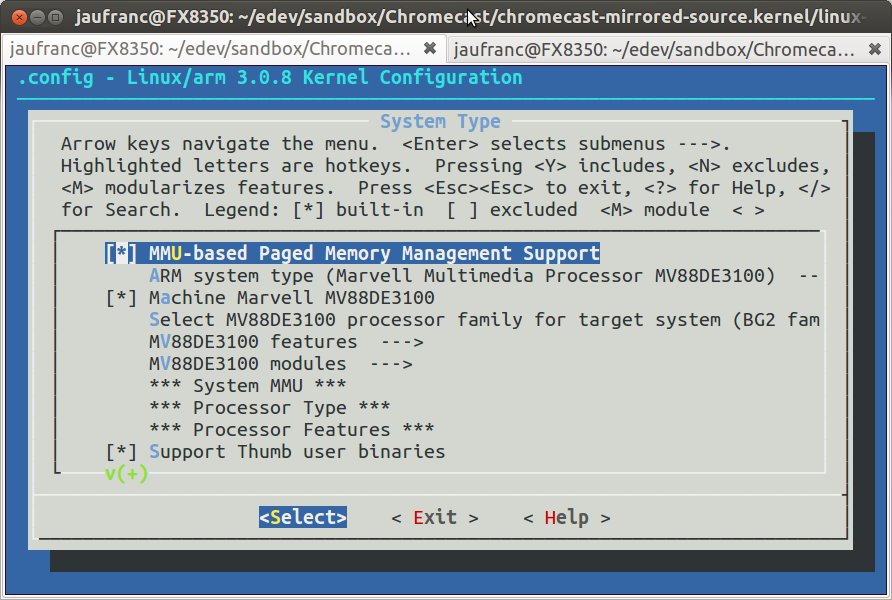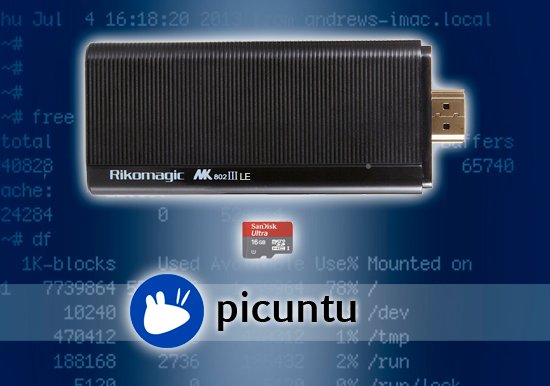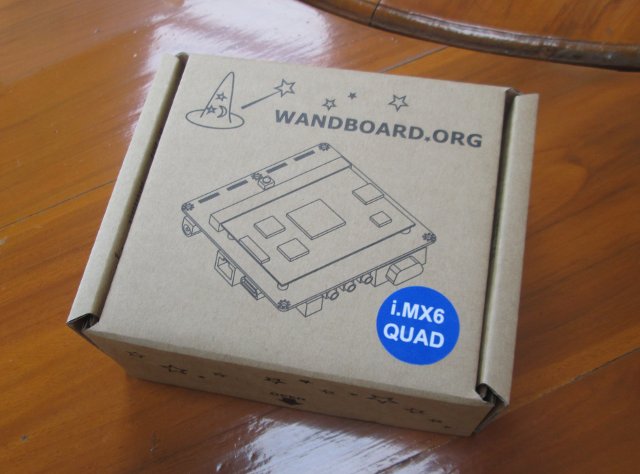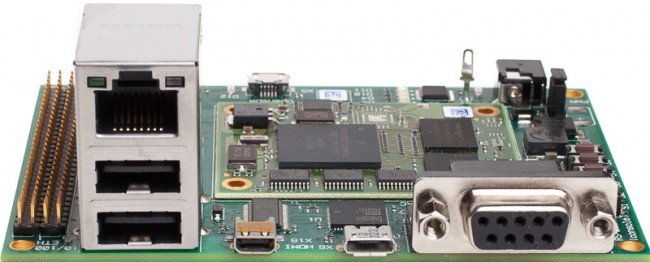Linaro 13.07 has been released with Linux Kernel 3.10.1 (both baseline and stable versions), and Android 4.2.2. It’s summer time, so activity seems to have slowdown a bit, yet improvements have done to LAVA with the first LAVA Multi-purpose Prove (LMP) setup, and Linaro has released build with Linux 3.10.1, Ubuntu Raring, OpenEmbedded (ARMv8), and Android. For the very first time, there’s even an Android 4.2.2 community build for HiSilicon K3V2 hardware (HiSilicon Hi4511 development platform). Here are the highlights of this release: LAVA LAVA Core VExpress A9 test images no longer use the master image’s boot loader Support added for interactive bootloader commands. Support for OpenID / Crowd added for LAVA. LAVA Master images updated on images.validation.linaro.org LAVA Multi-node – Multi-Node support has an initial implementation which can support communication between nodes under test via the use of a GroupDispatcher. LAVA Lab Capabilities – LMP (LAVA Multi-purpose Probe) prototypes […]
BeagleBone GamingCape Transforms your BeagleBone Black into an Hand-held Gaming Console
The BeagleBone GamingCape is an open source project featuring the BeagleBone Black together with extra hardware such as a Cape, LCD display, and enclosure that turns your Beablebone board into a battery powered hand-held gaming console. The gaming console, which has been designed within 6 weeks by Max Thrun, has the following key hardware features: 320×240 16Bit Color TFT LCD Analog joystick + 2 Thumb Buttons 3D Gyro, 3D Accelerometer, 3D Magnetometer Headphone Out + Mic In and it can emulate NES, GameBoy, GameBoy Color, GameBoy Advance, Sega Master System, Sega Game Gear, and also run Doom. It will not be mass produced, but the whole design is open source, and the necessary files are available for: The Cape: Schematics, layout, and CadSoft EAGLE file can be found Bill of Materials The Case composed of 11 laser cut pieces of Delrin – 3D files Emulators: Osmose – Sega Master System / […]
Hardkernel is Working on ODROID-XU Development Board Based on Exynos 5410 Octa Core Processor
Hardkernel have already done a good job at bringing low cost, high performance development boards based on Exynos 4 Quad processor with boards such as ODROID-X, ODROID-U2, or ODROID-X2. But it appears they are not stopping here, and have recently committed code to support ODROID-XU development board based on Exynos 5410, the 8-core big.LITTLE SoC from Samsung, used in devices such as Galaxy S4. The committed code linked above point the device tree files in arch/arm/boot/dts/ (exynos5410-odroidxu.dts and exynos5410-pinctrl.dtsi) where we can see the board will have 2 GB RAM, and the Cortex A15 cores with be clocked at 1.6 GHz. Exynos5410-odroidxu.dts has been removed from 3.11 branch, so the link above points to an earlier commit. Exynos 5410 might have been the first big.LITTLE processor ever available, but it comes with a major flaw, as it only supports cluster migration (all 4 Cortex A15 or all 4 Cortex A7 […]
Chromecast Open Source Code: Linux Kernel, Toolchain, Bootloader, and More
Google has made quite a stir by introducing Chromecast, and entering the HDMI TV Stick market. We already know the device is based on Marvell 88DE3005 SoC with 512 MB, and since the product are already been shipped to customers in the US, it was just a question of time before the release of the open source code, and everything you need appears to be available at https://code.google.com/p/chromecast-mirrored-source/ Let’s have a look at what we have in the different repositories: Wiki – Empty… Kernel – Linux 3.0.8 source code Prebuilt – Binary toolchain: arm-unknown-linux-gnueabi-4.5.3-glibc Toolchain – Source code for the toolchain above. External – Source code for alsa-libs, dnsmask, libexit and nss sdk – bootloader and DirecFB 1.6.1 vendor – Looks like qt source used in some netflix app (not sure) Chromium – README explaining how you can download Chromecast Chromium source code: 1.8GB tarball + you need to contact […]
149 Euros Geeksphone Peak+ Phone Running Firefox OS (B2G) is Available for Pre-order
The first Firefox OS phone, ZTE Open, has been selling in Spain since the beginning of the month, and Alcatel One Touch Fire has been available a few days later in Germany. Both of those phones have low hardware specs with a single core processor, and 256 MB RAM. There’s now a more powerful alternative, Geeksphone Peak+, based on Geeksphone Peak Developer Preview phone, featuring Qualcomm Snapdragon S4 MSM8255 dual-core processor with 1GB RAM. Here are the specs of the phone: SoC – Qualcomm Snapdragon S4 (MSM8225) dual-core processor @ 1.2 GHz with Adreno GPU System Memory – 1 GB RAM Storage – 4 GB Flash + micro SD card slot Display – 4.3 inch, 960 x 540 pixel IPS display Camera – 8MP rear camera and 2MP front camera Connectivity – WiFi, Bluetooth, FM radio, GPS Networks – GSM 850/900/1800/1900 (2G EDGE), UMTS 850/1900/2100 (3G HSPA). Sensors – Light […]
Rikomagic Announces MK802III LE and MK802IV LE mini PCs Preloaded with Linux (Picuntu)
If you’ve been following the ARM based mini PC space, you may already know about Rikomagic MK802 III and MK802 IV HDMI TV Sticks, respectively based on Rockchip RK3066 and RK3188, running Android Jelly Bean. Rikomagic and Cloudsto Electronics have just announced they will launch a “Linux Edition” (LE) for those two devices called MK802III LE and MK802IV LE Quad Core, running Picuntu (Ubuntu) Linux. Since Linux on RK3188 is still work on progress, Cloudsto MK802III LE will be available first, with the following specs: SoC – Rockchip RK3066 dual core Cortex A9 @ 1.6Ghz + Mali-400 MP4 GPU System Memory – 1GB RAM Storage – 16GB Micro SD card preloaded with PicUntu, but no word about NAND flash Video Output – HDMI (1080p) Connectivity – Wifi 802.11 b/g/n USB – 2 x USB ports It’s not very clear if the hardware will be slightly tweaked (e.g. smaller NAND flash, […]
Wandboard Quad Unboxing, Getting Started with Android and Linux (via The Yocto Project)
After my review of the Wandboard Dual in February, I’ve now received Wanboard Quad development board powered by Freescale i.MX6 Quad Cortex A9 processor, with 2 GB RAM, HDMI output, Gigabit Ethernet, and SATA. The board is available from several distributors including Mouser ($139), DigiKey ($144.38) and FutureElectronics ($125). I’ll start by showing some unboxing pictures of the board, as well as pictures of Wandboard Dual and Quad side-by-side. Then I’ll explain how to install Android and Linux on the board, build the images from source, run some benchmarks, and test different features. Wandboard Quad Unboxing Ive received the board via UPS in a large box that contained the package below. This is exactly the same as Wandboard Dual, except for the sticker. There’s just the board inside the package, and it would just look like Wandboard Dual with all connectors on the top, and the EDM module at the back, […]
$55 Phytec Cosmic Boards Feature Freescale Vybrid SoCs
Freescale Vybrid SoC family has been announced at the beginning of last year, with the low-end VF3xx and mid-end VF4xx featuring a single Cortex A5 CPU, and the higher-end VF6xx and VF7xx providing a multi-core processor with Cortex A5 and Cortex M4 cores, for respectively performance, and real-time/low power tasks. Phytec has just announced the Cosmic board featuring Freescale Vybrid VF6xx single core Cortex A5 processor, and Cosmic+ board with Vybrid VF6xx Cortex A5 + Cortex M4 processor. Both boards are comprised of a baseboard coupled with a Phytec phyCORE-Vybrid system-on-module (SoM), and can be used for Linux and MQX (Freescale RTOS) development. Cosmic / Cosmic+ boards specifications: Processor VF5xx ARM Cortex-A5 @ 500MHz (Cosmic) VF6xx ARM Cortex-A5 @ 500MHz + ARM Cortex-M4 @ 167 MHz (Cosmic+) System Memory – 512 MB DDR3 Storage – 512 MB NAND + micro SD slot USB – HS USB OTG / HS USB […]



